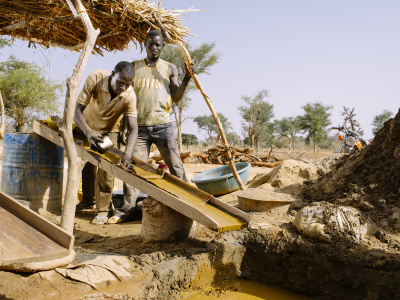“Awaking on Friday morning, June 20 1913 the South African native found himself, not actually a slave, but a pariah in the land of his birth”. This is how the black journalist and poet Sol Plaatje woke up in a New South Africa, exactly one hundred years ago. In his Native Life in South Africa he described heart rendering scenes of destitute African families thrown off the land and looking for shelter in the South African winter. On 19 June, the white Parliament of the three year old Union of South Africa had voted drastic land laws. With one stroke of the legal pen, the
Native Land Act forbade Africans to own land in but a tiny part of the country. After the plethora of repressive measures on Africans (for example through the imposition of hut, poll and other taxes), Africans were also no longer allowed to rent land from white land owners. This way they had to sell their labour to white farmers, which blocked the emergence of a black agricultural entrepreneurialism.
'The Seed is Mine'
You can trace the dramatic and lasting impact through the life of one of South Africa’s most proud – but perhaps also least known – African entrepreneurs: Kas Maine. Both Kas and Sol Plaatje happened to be in the same district, Bothaville, in that fateful summer month of 1913. Kas was a share-cropper: he could farm “on the halves” in return for a rent. In fact, even though the competition became massively twisted in favour of white farmers, many white farmers were still not able to “to afford to pay their labourers cash wages”. South Africa’s most prominent historian, Charles Van Onselen has minutely and masterfully reconstructed the life of Kas Maine.
“The Seed is Mine” provides a deep insight into the “disabling environment” for peasant farmers, and into the institutions that worked against emerging black entrepreneurs under successive white minority governments. It helps to better grasp the bewildering diversity of challenges for the most amazing variety of rural actors under stress. This is a moving biography. One can also admire him in black and white images, bent over his multiple agricultural utensils on the plot where he spends his final days in 1985. South Africa’s top photographer, David Goldblatt is one of many to contribute to the exhibition
Umhlaba 100 Years: commemorating the 1913 Land Act in Cape Town’s Gardens. This exhibition also registers the resistance that the land act generated – it proved to be one of the rallying points for a number of royal chiefs, lawyers, teachers, clerks, and leaders to form the black nationalist
South African National Native Congress a year earlier. Their first petition would be against the Native Land Act. The first law to be voted by the ANC government in 1994 was an attempt to undo this land theft and restitute land to blacks who had been dispossessed. But this proved to be vastly complex and demanding. Successive governments in the
Real New South Africa have been struggling with the fall out of past legislation on the rural black population.
Geoff Budlender was Director-General (1996-2000) of the Department of Land Affairs. In one of his contributions, he
sheds light on the land restitution process that was kick started by Mandela’s government, on its unintended consequences and on the institutions and organisational mechanisms that need to be in place to realize access to justice in land reforms.
Ruth Hall and Ben Cousins motivate in South Africa’s Mail and Guardian why
“new thinking on the future of farming and the role of land reform” is still desperately needed for achieving agricultural transformation and for creating the 1 million jobs in agriculture that South Africa’s
National Development Plan 2030 has put forward. That is also one of the reasons why a research consortium has been created in March this year,
the Future Agricultures Consortium. Three regional hubs (Kenya, South Africa and Ghana) will produce evidence and ideas about how Africa “can produce food, support farmers, involve the private sector and donors, and work with civil society”. FAC also supports the Comprehensive African Agricultural Development Programme, Africa’s call for action on governments to invest in rural development, agricultural production and food security. CAADP celebrates its tenth anniversary this year. The hope is that it will not become a centenarian. ---
Jan Vanheukelom is Senior Adviser Political Economy & Governance at ECDPM.
This blog post features the authors’ personal view and does not represent the view of ECDPM.




